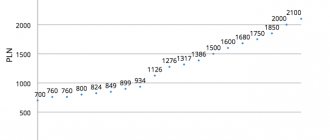Features of job search in Portugal
Those Russians who decide to work in Portugal will have a hard time. In recent years, this country, along with Spain and Greece, ranks among the first in Europe in terms of unemployment. It makes up about 13% of the total population, and among young people - 35%. And yet, finding a job in Portugal is possible if you have a sought-after specialty or are willing to change your occupation. Knowledge of languages is of great importance.
Where to look for work
You should not go to Portugal in the hope of getting a job. Work for Russians is offered on special websites on the Internet. Among them there are English-speaking ones; many international companies have offices in the country.
How did it happen that I moved to Portugal
I was invited to work in Lisbon with relocation, and I gladly accepted this offer. If it were another city that was interesting to me, I would also happily agree. Shortly before this, I decided that I wanted to live somewhere abroad. I started looking for vacancies, went through a couple of interviews, but there was no chemistry. I wanted to work remotely abroad, for example, to go to Thailand, but they called me to Lisbon.
Young Entrepreneurs Young Awards 2021. Apply now.
Around the beginning of April 2015, my wife Diana showed me a vacancy at Pure (the company was developing its dating application), and at the beginning of May we already arrived in Lisbon. There I also headed the mobile development department and was involved in product development.
My interview for this position took place in two stages: first there was a Skype conversation with the founders of the project, a few days after that they bought me tickets to Kyiv for a personal meeting.
I arrived in the morning and met with the founders of Pure and my future colleagues. We organized a small workshop and tried to work together. In the evening I flew back to Moscow, and the next day I received a job offer. They paid for my air tickets and gave me a monthly compensation of 200 euros for rent. We bought air tickets for Diana ourselves. We looked for an apartment ourselves and paid for it ourselves.

Mikhail with his wife
Advice. If you know the whole process and hire a professional in advance, then obtaining a work visa and residence permit in Portugal can be reduced to 3-4 months. For the first 9 months in Portugal we lived on tourist visas - they can be extended there.
Then Pure prepared a promissory contract for me, and my wife and I flew to Moscow to obtain a work visa. This procedure took 6 months. Diana received a tourist visa again and we were able to return to Portugal. After another 3 months I received a residence permit. For Diana, we already did it ourselves.
Popular vacancies
Qualified specialists in Portugal are currently in demand in two areas:
- IT industry – programmers, system administrators.
- Medicine – traumatologists, surgeons, cardiologists.
Jobs in Portugal are offered at construction sites even without knowledge of the language. These are crane operators, welders, painters. Local residents are reluctant to take such positions. Without special education, you can count on seasonal employment in agriculture or in the tourism sector.
Read also: Residence permit in Portugal Life in Portugal for Russians
Popular specialties
In 2021, the situation with vacancies for qualified workers is not the most rosy. Over the past 2-3 years, several large international companies have decided to close down their Portuguese subsidiaries. Many educated Portuguese were left without work and were forced to take up unskilled labor or register on the stock exchange. Vacancies for Russians in their specialty are closed simply because the country does not need so many professionals.
However, this problem does not affect all industries. As throughout the world, information technology is rapidly developing here; programmers, system administrators, and network security specialists are in demand. Their salary is on average 1000 euros per month. Another area that continues to be in demand is medicine. According to reviews from doctors from Russia, Ukraine and Belarus, it is relatively simple to confirm a diploma in this country, compared to Germany, France or the USA. Doctors earn more than 1,500 euros per month; the most needed are cardiologists, surgeons, traumatologists, and anesthesiologists. There is also a demand for junior and nursing staff in hospitals, as well as nurses for caring for the sick and elderly at home. Slavs are willingly hired for such vacancies because their reputation is better than that of people from Africa and the Middle East.
Despite the fact that new buildings are being built much less intensively these days, workers are still needed. The local population does not like to do physical labor; they are more happy to idle and live on benefits. Therefore, most of the visitors work on construction sites.
Work in Portugal for builders, painters, and crane operators is available even without knowledge of the language. True, men work predominantly in this industry.
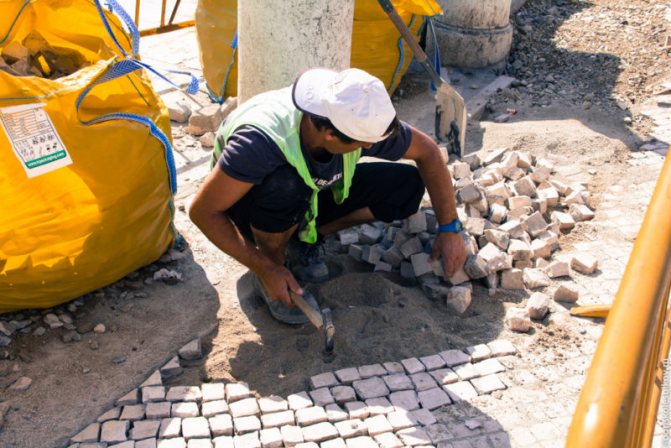
Construction trades for foreigners are still available in Portugal
Women can work as waitresses, maids, cleaners, supermarket clerks, sorters and packers. Other popular professions for women are seamstress, hairdresser, masseuse, and manicurist. Their monthly earnings are on average about 600-700 euros.
Legal employment
To officially get a position, you need to find an employer and sign a contract. This document is then checked by the Institute of Employment and Vocational Training. The main thing is that there are no applicants for the same position from among local applicants or citizens of European Union countries. Working as a doctor in Portugal is possible only after the applicant’s diploma is recognized by the commission of the Faculty of Medicine of a Portuguese university.
The permit is valid for 6 months, then it can be renewed. In parallel with it, a residence permit is issued, confirming the legality of stay on the territory of the state. It can be short-term, from 3 to 12 months, and long-term, up to 5 years. After six years of residence, you can apply for citizenship.
Diploma confirmation
Nostrification of educational documents from Russian educational institutions is mandatory when applying for a job in a specialty in Portugal. State universities and the Catholic University are engaged in this. To pass the equivalence procedure, you need to obtain from your educational institution a detailed program for each subject, broken down by topic and indicating the number of hours. A special commission compares the documents presented with those in force in Portuguese universities and makes a decision.
It is much easier for doctors to confirm their diploma in Portugal than in other European countries. This is done on the basis of the Bologna Agreement, it takes only two months, and you can submit documents from Russia.
Blue card
In 2009, the European Union approved this project, similar to Greencard in the United States. This is an identity card confirming a temporary residence permit and giving the right to work. In Portugal, the opportunity to obtain such a Blue Card is available to a specialist with higher education and practical experience of at least 5 years. The holder of such a certificate does not need to obtain a work permit.
Applying for a work visa
A work visa to Portugal for Russians gives the right to enter the country as a hired specialist or private entrepreneur for a period of 1 year. It will require the following documents:
- International passport;
- Questionnaire;
- Medical insurance;
- Three photographs;
- Housing rental agreement;
- Work contract;
- Permission from the Institute of Employment and Vocational Training;
- Education document;
- Bank account statement confirming the availability of funds;
- Certificate of no criminal record with translation and apostille;
- Receipt for payment of state duty.
A visa to Portugal can only be issued in the applicant’s country of permanent residence.
Quality and standard of living in Portugal
Port wine and football are the first things that come to mind when talking about this small country. The standard of living in Portugal for foreigners depends on education, language proficiency and willingness to work. The state has large fields and gardens where Mediterranean vegetables and fruits grow. Small towns predominate here, where the population does not exceed 10 thousand people.
Portugal has good roads, no traffic jams and many cozy restaurants and cafes where you can eat tasty and inexpensive food. Local residents are used to drinking a cup of coffee and eating delicious cake in the morning while sitting in their favorite restaurant.
The kitchen is a source of pride. Fresh seafood, vegetables and fruits, and wine rich in aromas and spices are used for cooking.

Food prices and housing maintenance
It is estimated that a family of two purchases food worth 300-400 euros per month. The Portuguese love not only breakfast in cafes, but also lunch. In a good establishment you can have a delicious meal for 20 euros for two.
One of the advantages of the country can be called wine. Each region has its own brands of this product, the price for one bottle is about 3-5 euros. Collection wines will cost much more.
Utility costs are also low. For a one-room apartment you will have to pay 64 euros per month, for a two-room apartment - 76 euros, and a three-room apartment - 95 euros. Renting an apartment here is expensive: it all depends on the city. Lisbon has the highest cost: from 470 (in the outskirts) to 710 euros (in the city center). In other cities – 200-500 euros.
The average salary in Portugal is 1,530 euros per month. But a one-room apartment in Lisbon will cost 53 thousand euros. In other cities, the price per square meter starts from 1000-1200 euros. Mortgage housing is provided at 2.85% per annum.
Medicine
Medicine is at a high level in Portugal. However, there are not enough doctors, and free care can only be obtained through insurance. Therefore, you can wait a very long time for a consultation with a specialist.
In a private clinic, services will cost from 50-70 euros, but you won’t have to wait long. In this way, details regarding the disease and its treatment can be obtained. As for emergency care and pediatrics, they are well developed here. Not so long ago, dental insurance began to be included in insurance. The treatment here is of high quality, according to the latest international standards.
The Portuguese are active people, they don’t like to get sick, so they lead a healthy lifestyle. This includes not only high-quality and healthy nutrition, but also sports (mostly running, cycling, swimming and football).

Education
Here you can get quality education at a low cost. It is in this country that the oldest universities in Europe and other educational institutions are located. The Ministry allocates funds for research laboratories and material support for students.
Tuition fees range from 4,500-36,000 euros per year.
Several reasons why you should choose education in Portugal:
- Comfortable living conditions. The sea and sun help to adapt faster; students love this country.
- Low cost of goods and services.
- Good attitude towards foreigners. To enter universities, it is not necessary to have excellent knowledge of the language; initial levels and understanding of speech will be enough. Upon admission, international students will take a course of linguistic classes, where they will be taught the language.
- Career growth. Both theoretical and practical knowledge are equally provided here. Therefore, graduates with goals can easily enter the European labor market.
The education system is built on cycles: licensee (3 years of study), master (2 years), doctor (3 years).
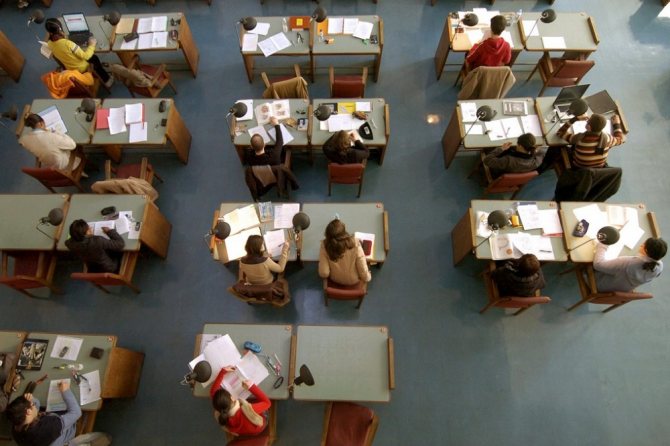
Transport
You can travel around the country and beyond by planes, trains, cars and ships. Public transport is represented by buses, metro, and trams. There is also a taxi that can take you anywhere in the city.
If you don't have your own car, you can rent one. The cost of such a purchase depends on the season, class of car and number of tourists. To rent a car, you need to show a passport or other identification documents.
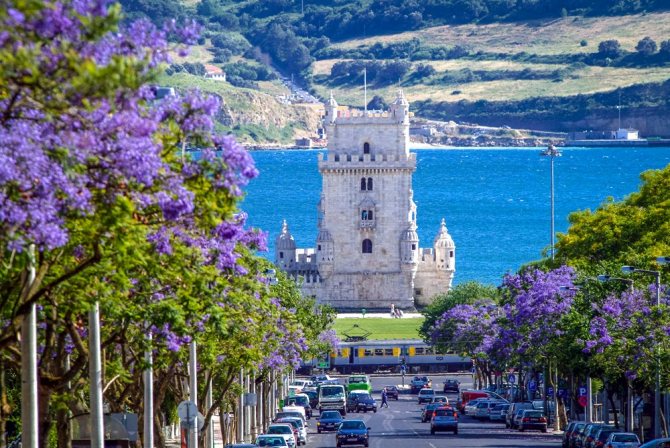
Pensions and social benefits
There are many elderly people in Portugal. Pensions in the state are divided into two groups:
- based on earnings;
- social, which is due to those who have not worked.
To receive a pension, you must have at least 15 years of work experience (this also includes foreign citizens).
The country also has a child benefit, which depends on family income. It consists of the amount of monthly payments of each family member, divided by the number of children plus one.

Crime situation
The crime rate in the country is low, but you should watch your hand luggage. In places with large crowds of people, there is a high probability of theft.
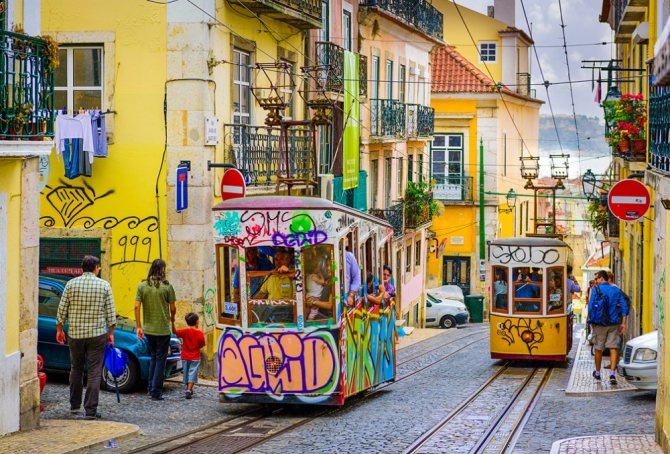
Unemployment rate
Over the past year, the unemployment rate was 6.8%, which is significantly lower than the year before. However, this figure is higher than in the EU. The reason for this can be attributed to the weak economy and the increase in population activity.

Residence permit in Portugal 2021 – Health statistics in Portugal
Portugal has a high level of medical services. The Portuguese healthcare system was ranked 14th in the 2021 Euro Health Consumer Index (EHCI), up six places from the previous year and 25 places since 2012. That year, Portugal was ahead of the UK and Spain for the first time in terms of the quality of healthcare provided.
By the way, holders of Portuguese passports can visit both neighboring countries without first obtaining a visa. Read more “Visa-free countries for Portugal 2021 – information for those wishing to obtain a second Portuguese passport through a golden visa.”
The health care system in Portugal is controlled by the Portuguese Ministry of Health and, as noted above, consists of the universal public health care system "Servico Nacional de Saude" (SNS), a voluntary private health insurance system that is used by approximately one fifth of the population, and special social health insurance schemes (health care subsystems).
Portugal currently spends around 8.9% of its GDP on healthcare, which is only slightly below the Organization for Economic Co-operation and Development (OECD) average. About 70% is government spending, while the remaining 30% is private spending.
Life expectancy in Portugal is 78 years for men and 84.4 years for women, which is higher than the European average. Portugal has approximately 4.5 doctors per 1,000 people, which is also slightly above the European average. Even more interesting statistical and other facts about this country can be found in the feature article. Read more “Immigration to Portugal through the Golden Visa – Learning 30 facts about the European country.”




